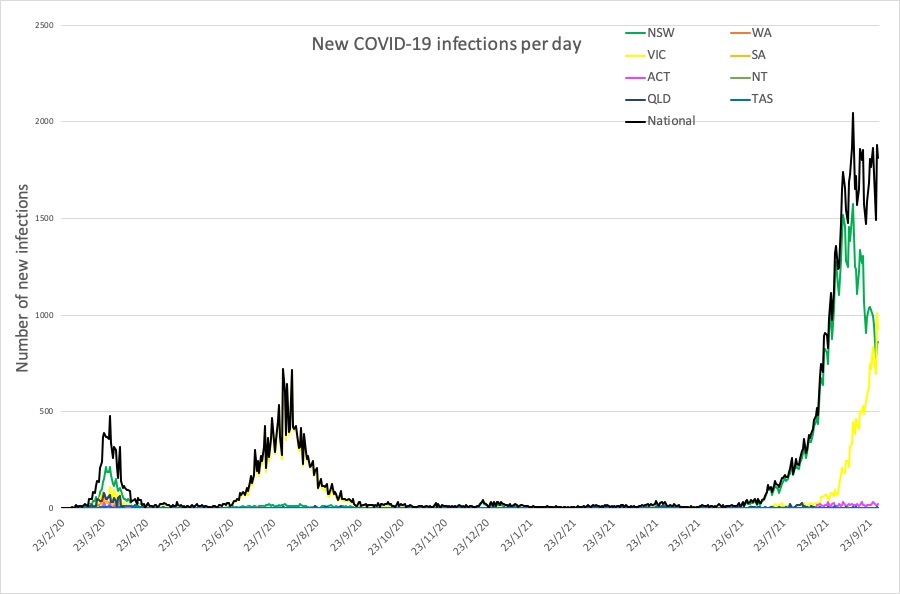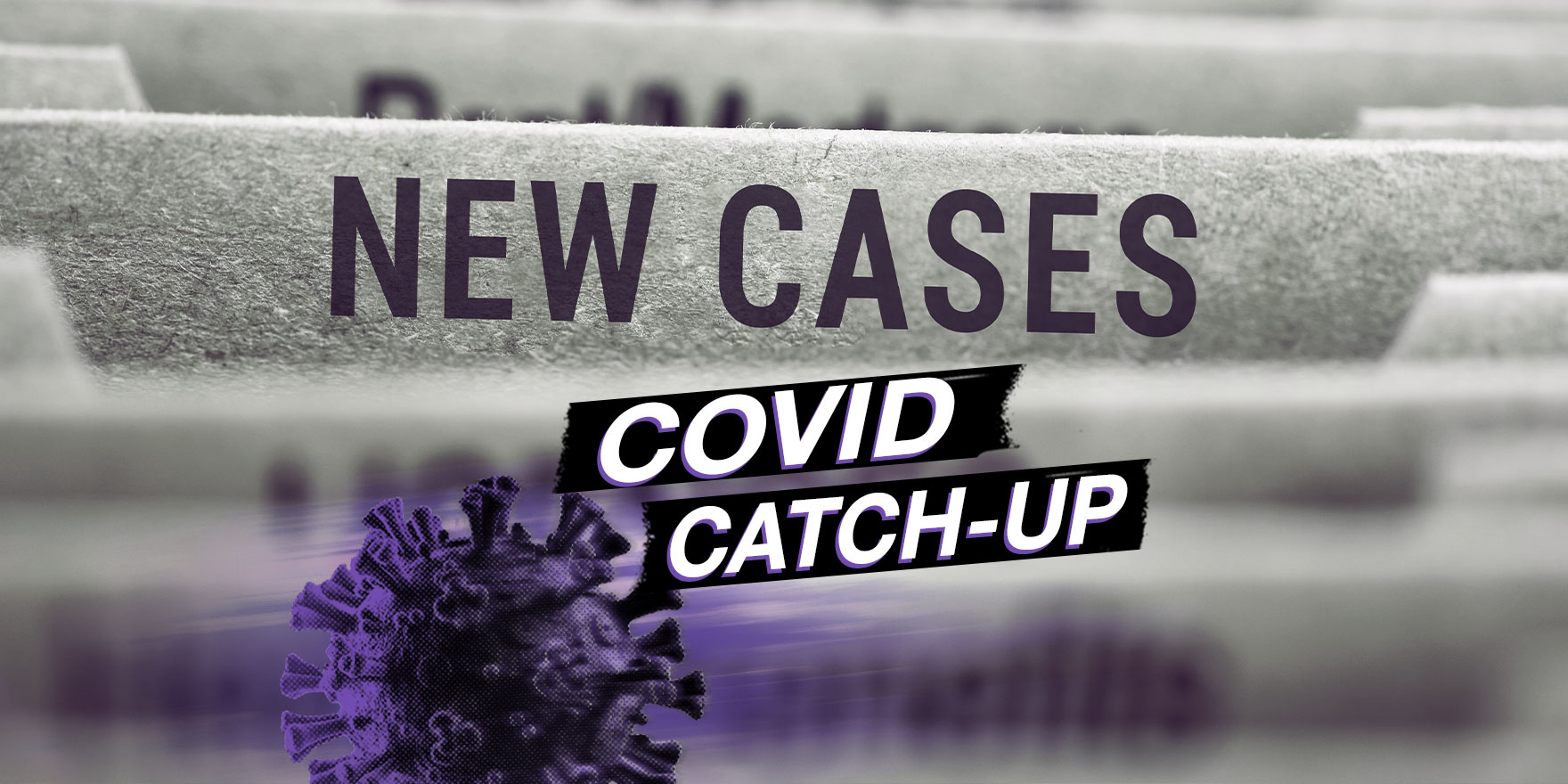And some GPs fear patients are ignoring prescreening before appointments.
Welcome to The Medical Republic‘s Covid Catch-Up.
It’s the covid-19 news in one convenient post. Bianca Nogrady is taking a well-earned fortnight off, so for now please email penny@medicalrepublic.com.au with any tips, comments or feedback.
30 September
- Australia’s death rates went down in 2020
- GPs fear exposure at work
- Victoria’s Grand Final hangover
- AstraZeneca is safe and effective
- mRNA vaccines for all
- Vaccines really do work
- The latest vaccination numbers
- The latest case numbers
Australia was one of a few countries to record a drop in its death rate in the first year of the pandemic, according to an Australian Bureau of Statistics report released this week.
In causes of death last year, covid came a distant 38th on a table led by ischaemic heart disease, dementia, cerebrovascular diseases, lung cancer and chronic lower respiratory diseases. Deaths from all these causes were down compared with 2019.
Suicide deaths were down overall in 2020 – defying predictions at the start of the pandemic – but rose among Indigenous people, whose age-standardised rate is well over double that of the non-Indigenous population.
Drug overdose and motor vehicle accident fatalities were also down, though alcohol-induced deaths went up by 108 or 8.3%. The biggest falls in death rates were among males under 25 and females over 85.
Francine Crimmins reports: Despite climbing vaccination rates and a shift to accepting that covid is now here to stay as an endemic disease, a number of GPs are still scared of being exposed to the virus at work, an Australian study shows.
A cross-sectional online survey of about 300 GPs in March, conducted by the education provider Healthed, revealed that GPs still had concerns about patients ignoring prescreening advice for covid when attending face-to-face appointments.
The study, published today in the Australian Journal of Primary Health, revealed that a quarter of GPs were either very or extremely concerned about their risk of exposure to covid. In addition, about 40% of respondents said they were either very or extremely concerned about patients ignoring prescreening for covid, and 35% said they were very or extremely concerned about the safety of their colleagues and family.
The study authors noted that while these same concerns had been identified by the RACGP at the beginning of the pandemic, the issues remained largely unresolved.
Victoria has had a bad covid day, recording a surprise 1438 cases after yesterday’s record of 950. The government has blamed the jump on illegal AFL Grand Final parties last weekend.
Melbourne GP and practice owner Dr Nathan Pinskier has called for an after-hours covid hotline to take some pressure off hospitals and triple-0, which is experiencing a volume of calls rivalled only by the thunderstorm asthma event of 2016.
Oh, and speaking of thunderstorm asthma, hospitals and pressure:
We are due to be facing conditions for thunderstorm asthma in the next week and month. @MelbournePollen has developed an app which you can download on your iPhone or Android account so you can stay on top of pollen counts in your area.
— The Royal Melbourne Hospital (@TheRMH) September 29, 2021
Download here: https://t.co/fbYgpSt9XW
More evidence is in confirming the safety of the ChAdOx1 nCoV-19 vaccine, better known as AstraZeneca, and its efficacy against symptomatic infection.
A double-blind, randomised, placebo-controlled, phase 3 clinical trial involving more than 32,000 people in the US, Chile and Peru, published in NEJM, found the same rate (0.5%) of serious adverse incidents in the vaccine group and the placebo group.
Efficacy at preventing illness was an estimated 74%, or 83.5% in those 65 or over, while efficacy against hospitalisation was 94%.
But this news is unlikely to restore that vaccine’s reputation, with reports that older people are still holding out for one of the mRNA vaccines. So, following federal Health Minister Greg Hunt’s assurance at the weekend that there would be plenty of Pfizer and Moderna in the country by the end of next month, NSW and ACT have followed other states and territories in making over-60s eligible for those vaccines.
National policy is still that AstraZeneca is preferred for over-60s, but Operation Covid Shield told primary care providers last month that as long as they weren’t turning away higher priority patients, they could allocate vaccines according to state rules.
Mr Hunt said today that “there are over 300,000 [older Australians] that may have been waiting” for an mRNA vaccine.
Booster shots of those vaccines have no greater or worse side effect profile than the standard two shots, according to trial data submitted by Pfizer and Moderna.
While NSW recently reported its deadliest day, with 15 people dying from covid, there is a small glimmer of good news in the fact that the case-fatality rate in Australia so far appears to be below what was seen in the first and second waves of the pandemic:
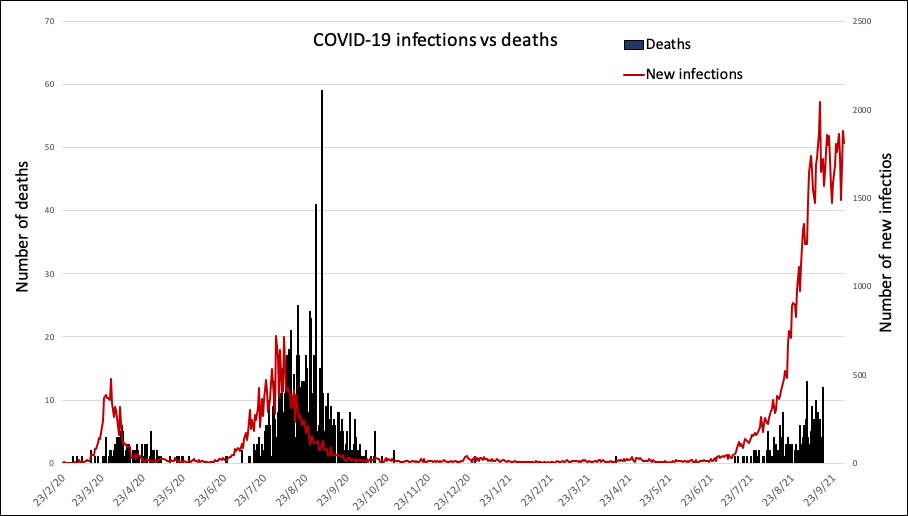
The latest data from Australia’s covid vaccination campaign shows that nationally, 53.42% of Australians aged over 16 years have now had two doses of vaccine, 70.66% of those aged 50 years and over are double-vaccinated and just over 78% of those aged 70 years and older:
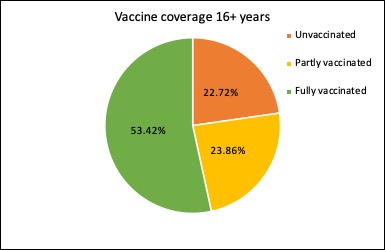
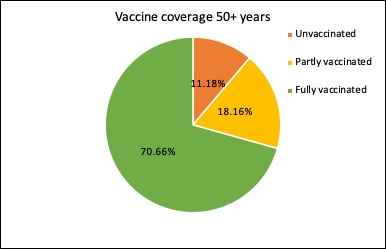
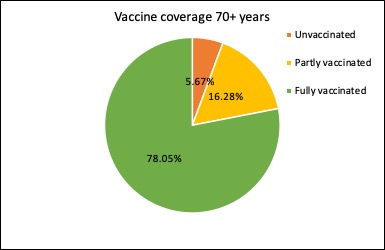
Vaccination rates among those aged 12-15 years are rocketing up and already just over one-third of this age group have had at least one dose of vaccine:
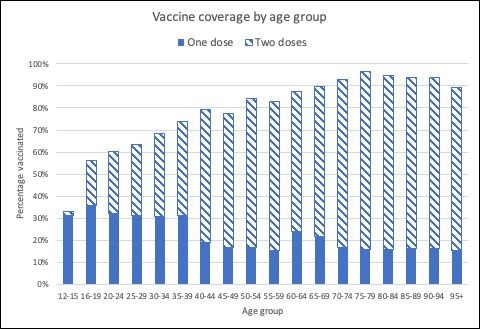
Here are the latest covid infection numbers from around Australia to 9pm Wednesday:
National – 102,723 with 1278 deaths
ACT – 928 (22)
NSW – 61,420 (859)
NT – 210 (0)
QLD – 2029 (1)
SA – 901 (0)
TAS – 235 (0)
VIC – 35,904 (929)
WA – 1096 (0)
